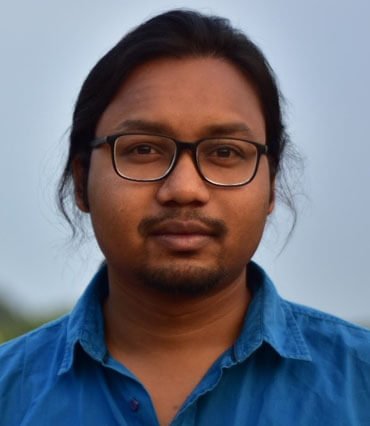I too can write Sahab,
but who will bail me out?
Late Jitendra Meravi
Translated by Akash Poyam
लिख तो मैं भी सकता हुं साहब, पर जमानत कराएगा कौन?
असमानता, शोषण की राह लिखुं
या दमनकारियों की वाह लिखुं,
कल्लुरी की जीत लिखुं
या खामोश आदिवासीयों को मृत लिखुं।
नक्सलियों के कुकर्म लिखुं
या महिलाओं का दुष्कर्म लिखुं
लिख तो मैं भी दुं साहब
पर लगी आग बुझाएगा कौन
घर से विस्थापित बैगाओं का हाल लिखुं
या बेदखल करने वाले शोषकों की चाल लिखुं
टाटा, अडानी के लिए शासकों की प्रीत लिखुं
या वीरान जंगलों में गुंजने वाली रेलाओं के गीत लिखुं
फर्जी मुठभेडों में मरे लोगों कि दुर्दशा लिखुं
या जेल में बंद निरापराधियों की दशा लिखुं
लिख तो मैं भी सकता हुं साहब
पर जख्मों पर मरहम लगायेगा कौन
बेघर अपनों कि दास्तां लिखुं
या ठेकेदारों की उपलब्धि
कैंपों में रहने वाले आदिवासीयों को लिखुं
या घुसपैठियों के काले कारनामें लिखुं
“लिख तो मैं भी सकता हुं साहब
पर जमानत कराएगा कौन?
Likh toh main bhi sakta hun sahab, par jamanat karayega kaun?
Should I write on the inequalities and exploitation
Or eulogize the oppressors
Should I write on Kalluri's victory[i]
Or portray the silent Adivasis as dead
Should I write on the misdeeds of Naxalites
Or the sexual violence perpetrated on Adivasi women
I too can write, Sahab
But who will put out the burning fire?
Should I write on the Baiga[ii] people displaced from their homes
Or the con exploiters who evict us
Should I write on the rulers' praises for Tata and Adani
Or the sound of rela[iii] that echoes in the desolate forest
Should I write on the plight of people killed in fake encounters
Or the innocent people locked up in jails
I too can write, Sahab
But who will soothe my wounds?
Should I write stories on my own homeless people
Or the wealth and success of the contractors
Should I write on the Adivasis living in camps[iv]
Or the evil deeds of the encroachers
I too can write, Sahab
But who will bail me out?
[i] SRP Kalluri, a former Inspector General of Police in Chhattisgarh state, accused of killing, rapes, burning of houses and other human rights violations.
[ii] Baiga people are Indigenous people of central India and are categorised by the Indian government as a Particularly Vulnerable Tribal Group. They have been displaced from their ancestral land for tiger reserve and other industrial development projects.
[iii] Rela pata or song are considered central to Koitur community, and are also a way of offering tribute to the ancestors.
[iv] Camp refers to relief camps built for the Koitur Adivasi people in Bastar who were displaced from their village during violence of Salwa Judum, a militia of local people created by the support of India state to fight the Maoist rebels or Naxalites, who are also largely Adivasis.
— —
I would like to thank Nolina Minz for editing the translation.
— —
Akash Poyam is a writer and copy editor for The Caravan.



